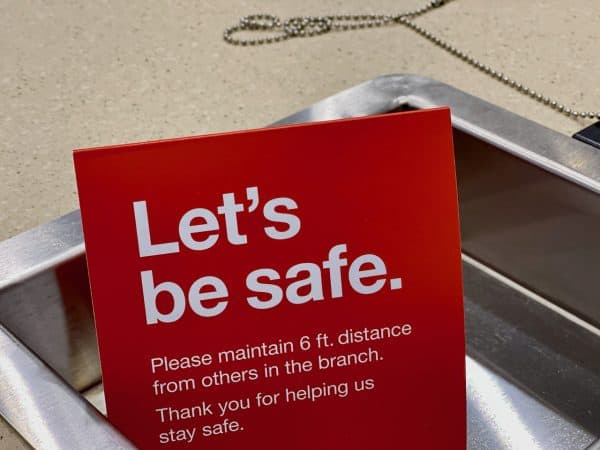Surging global inflation is the number one concern for many households in 2022. With living costs continuing to rise much faster than wages, household budgets are increasingly stretched.
Let’s take a closer look at how inflation is changing the game. In the UK, inflation has recently surpassed 5% – well over double the Bank of England’s initial 2% for 2021 – and is forecast to keep on rising throughout early 2022. The rate is already at a ten-year high and it seems that every time we hit the estimated rate, we see another spike.
Across the pond, the US is in an even worse situation – inflation is at the highest level in almost 40 years at 7% according to recently released figures.
Many households are already at a breaking point, with many more facing financial uncertainty or worse over the coming months. Recent figures from the Centre for Economics and Business Research indicate that the average UK family could be £1,700 worse off next year.
Our recent research shows that over a quarter of families in the UK will need to borrow to survive the next few months – this is compared to just 5% of families with grown-up children. Clearly, some groups are disproportionately at risk of falling into severe debt.
The prospect of lockdown is likely to have a much more significant impact on these same groups –families with children under 18 are almost three times more likely to say they’re unable to financially survive another lockdown this winter (44% vs 16%) than those without children.
Similarly, younger people are also adversely impacted – a third of 18-34-year-olds wouldn’t be able to financially survive another lockdown. There is a clear generational imbalance as just 7% of those aged over 55 held the same fears.
As inflation rises, the situation will only become more perilous for many.
What can be done to turn the tide and ensure families receive support?
In a crisis, solutions are often needed to protect the economy and ordinary people. The fact is that we are in the midst of a crisis, and something needs to be done.
 The UK’s furlough scheme was launched in response to the economic impact of the Covid-19 pandemic, providing a lifeline to many employers who would have otherwise faced financial ruin and employees who would have been at risk of redundancy. Of course, the scheme was incredibly costly to the public purse – estimates suggest £69bn was spent – but the effects of not acting could have been catastrophic for the entire UK. Whilst I’m not suggesting the scheme makes a return, it’s a great example of the role that government can play in providing support to those in need.
The UK’s furlough scheme was launched in response to the economic impact of the Covid-19 pandemic, providing a lifeline to many employers who would have otherwise faced financial ruin and employees who would have been at risk of redundancy. Of course, the scheme was incredibly costly to the public purse – estimates suggest £69bn was spent – but the effects of not acting could have been catastrophic for the entire UK. Whilst I’m not suggesting the scheme makes a return, it’s a great example of the role that government can play in providing support to those in need.
While furlough or benefits packages might not be a sustainable long-term solution, outside of Government support charities and other businesses have worked hard to provide additional support during these difficult times. For example, the latest figures from StepChange indicate that 13,000 new clients approached the charity for debt advice in November alone and its ‘emergency funding’ page saw 24% more visits compared to the previous month, demonstrating the scale of the issue.
On an individual level, in order to struggle through the most expensive period of the year, many households may need to look for alternative ways to borrow. Unfortunately, the impact of inflation on household budgets means that borrowing is likely to increase throughout the year.
Credit products such as Buy Now, Pay Later (BNPL) schemes could be set for a boost in popularity as households continue to juggle their finances. But make no mistake, these products are a form of credit – they come with repayment plans that must be met and can impact someone’s credit profile in the same manner as other types of credit.
For many, increased borrowing or reliance on credit runs the risk of increased debt. As borrowers have reduced access to affordable credit they are forced to turn to high-cost lenders. Are we at risk of entering a personal credit crisis? The concern is that the financial landscape prevents those who will need affordable credit from seeking it as we emerge from the expensive Christmas period when costs have piled up.
Fortunately, the solution is clear. A more widespread embrace of tech across financial services is vital to ensure that those that need support can access it at this crucial time.
We’ve seen this new approach in all types of financial support, from credit to mortgage lending, with new products or solutions – driven by tech – continuously launching to unlock more options to borrowers.
Increased awareness and acceptance of open banking is also likely to grow during 2022. Currently, appetite to embrace the benefits of open banking remains low amongst certain demographics – for example, research from financial software giant Altus shows that just 35% of over 55s are happy to share financial data compared to over half of those aged between 25 and 34.
It is up to financial providers to dedicate resources to ensuring that awareness of the benefits of an open banking approach are more widespread across society. Without this approach, providers cannot provide the products necessary to meet customer demand.
Embracing tech has a direct impact on the costs customers face. A streamlined approach is key for a business to reduce operational costs and ultimately provide more value for customers. Our solely digital presence allows our firm to be more agile and reduces the costs of administering and managing our products and therefore offers more affordable products to our customers.
New year, new solutions
Throughout 2022, we’re going to need to see a range of innovative solutions come to market to support those people who are struggling the most with their finances.
Whether that entails new tools allowing people to manage their household budgets or spending better, or products that unlock access to more suitable affordable credit options, more needs to be done by the finance industry to support households struggling through one of the toughest financial periods in our lifetime.
This means that it is an incredibly exciting time for innovative Fintechs who are looking to fill the gaps left by the incumbent financial services providers and ensure that all borrowers are supported and have fair access to credit options.
Embracing a more aligned tech approach will be vital to ensure financial services can provide the support tools and solutions that customers demand and desperately need during the tough months ahead.
Sarah Touzani, is Chief Operating Officer of Creditspring, a subscription loan provider. Touzani has been COO of Creditspring since 2019 and was previously Head of Operations. Before that, she spent eight years in consulting and banking operational roles including at HSBC, Actuaris, and BNP Paribas focusing on compliance, operations, and risk management. In 2021, Creditspring launched a product called Step designed to help clients to gradually improve their credit scores without incurring additional debt.



